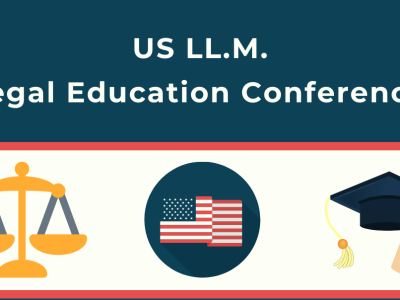Updated January, 2017: Get insight into bar exam eligibility and other topics by reading our in-depth coverage of the US bar exam for LL.M.s
Updated September, 2016: A new article, Using the LL.M. to Take the American Bar Exam, has been posted on this topic.
Some practical info for foreign lawyers considering taking a US bar exam after the LL.M.
Why should I take the bar exam in the United States?
A lot of you probably already know the answer to this. Indeed, many choose to pursue an LL.M. in the United States precisely because they want to take a US bar exam. But for lawyers studying in the USA for other reasons, there are many reasons to do it.
First, it can look good on your CV – both to US and foreign employers – if you obtain a US legal qualification rather than just pursuing a degree. Moreover, by passing the bar, you can demonstrate your understanding of US Law – often a real challenge after just a year of study in the USA. Finally, passing a state’s bar exam will, subject to the individual attorney admission requirements of the state, allow you to practice law in that state as a fully admitted lawyer. This can be much more challenging, and can offer better job prospects than working as a law clerk or foreign legal consultant. Of course, only you can decide whether taking a bar exam is right for you.
In what state should I take the bar exam?
Like the decision to take any bar exam at all, the decision on which state’s exam to take is a highly personal one. When deciding which state’s bar exam to choose, remember that, with extremely limited exceptions, you will only be admitted to practice law in the state where you pass the examination. Therefore, if you are planning to continue practicing in the USA after taking the examination, it might be a good idea to base the decision on where you would like to work or live rather than which state has the easiest admission requirements.
On the other hand, if you don't plan to live in the USA after the exam, you might consider the simplicity of the state’s requirements. For instance, New York is a very popular state for foreign lawyers seeking a US legal qualification (although the bar examination is by no means easy), while California is considered one of the more difficult states in which to obtain a qualification.
What can I expect generally from the bar exam?
The examination is taken in several parts over two or more days. Most states dedicate one day to the Multistate Bar Examination, a multiple-choice examination covering such topics as Contracts, Torts, Property, Constitutional Law, and Evidence, not specific to the law of any one state.
Another day would cover the law of the specific state administering the exam. This could be a multiple-choice exam or an essay exam, or both. In addition, the exam may include the Multistate Performance Test, designed to evaluate lawyering skills rather than substantive law.
In addition, some states such as California have a first-year law student examination, but foreign law graduates may be exempt from this requirement.
Finally, you will most likely be required to pass the Multistate Professional Responsibility Exam, which is administered on a separate occasion from the regular bar exam, and tests your knowledge of professional ethics.
As a foreign lawyer, am I eligible to take the bar exam?
Many US states permit foreign law graduates to sit their bar examinations if they meet specific requirements. A discussion of some of the requirements of two major states:
New York:
Section 520.6 of the New York Rules of the Courts of Appeals for the Admission of Attorneys and Counselors at Law, 22 NYCRR 520.1-520.15 contains eligibility requirements for individuals who have a foreign legal education. Under this section, an individual with a foreign legal education can qualify for the bar examination if the legal education was: 1) successfully completed; 2) at least three years in duration; and 3) taken in a country where the legal system is based on the English common law system.
If either 2) or 3) does not apply to you, you may be able to “cure” the problem by pursuing a course of study at a law school in the USA. In other words, if you either do not have a three-year degree in law from your country, or your country does not follow the English common law legal system, then you may still be eligible to take the bar after pursuing a course of study in the USA at a law school approved by the American Bar Association. Please note that under no circumstances would a course of study shorter than two years from a common-law country, or three years from a non-common-law country, be acceptable, even in connection with additional study in the USA.
The study itself is also subject to different requirements. First, it must be an actual “program of study,” meaning that you must be matriculated at your chosen university rather than just taking a course or two. One possible course of study is an LL.M., but this is not required. The program must involve a minimum of 20 semester hours of academic credit in order to qualify, which means that you would be required to complete 20 hours per week of study, per semester. The program you choose must be successfully completed, even if that involves completing more than the 20 semester hours of credit.
The courses must be in “professional law” subjects, rather than independent study or non-law subjects. At least two courses must be in subjects that are tested on the New York bar exam (known under the New York Rules as “basic courses in American law”). Under New York Board of Law Examiners rules, these subjects are: business relationships; conflict of laws; constitutional law (New York and federal); contracts; criminal law and procedure; evidence; family law; New York and federal civil jurisdiction and procedure; professional responsibility; real property; remedies; torts (including statutory no-fault provisions); trusts, wills and estates; and Uniform Commercial Code articles 2, 3 and 9. To determine exactly which courses are acceptable, you may want to check with your university.
To learn more about the eligibility requirements for the New York Bar exam, visit the website of the New York State Board of Law Examiners.
California:
The requirements for taking the California bar exam are similar to those in New York, except that every foreign law graduate must complete an entire year of law study at an approved law school in the US except those who are admitted to the practice of law in their home country. Foreign-admitted lawyers do not require any additional study.
On the subject of the “first-year law students’ examination,” there appears to be conflicting information on whether foreign law students are required to pass it before becoming eligible to take the California bar. It is highly recommended that you contact the California Conference of Bar Examiners to obtain an individual evaluation of your eligibility.
To learn more about the eligibility requirements for the exam, visit the website of the State Bar of California.
Other states:
Each state has its own requirements. Many of the requirements are extremely complex, and may include reduced or different requirements for applicants who are already admitted to the bar of another US state or of their home country. It is strongly recommended that you contact the state where you seek to be admitted to learn their requirements and, if possible, have them individually assess your eligibility.
To get an overview of the individual requirements of each state, check out the National Conference of Bar Examiners’ Comprehensive Guide to Bar Admission Requirements 2015.
Image: "Albert V Bryan Federal District Courthouse - Alexandria Va" by Tim Evanson / Creative Commons (cropped and rotated)










